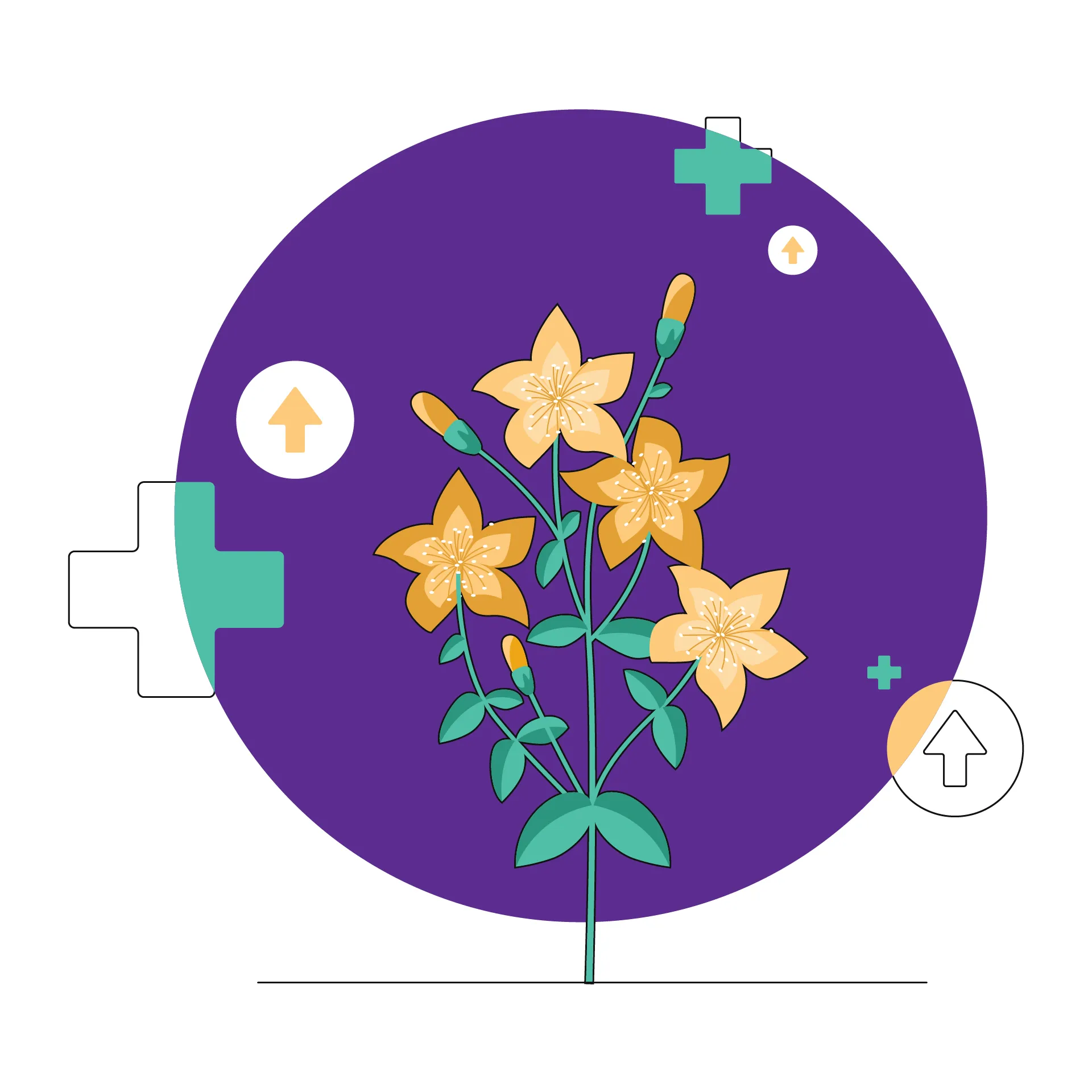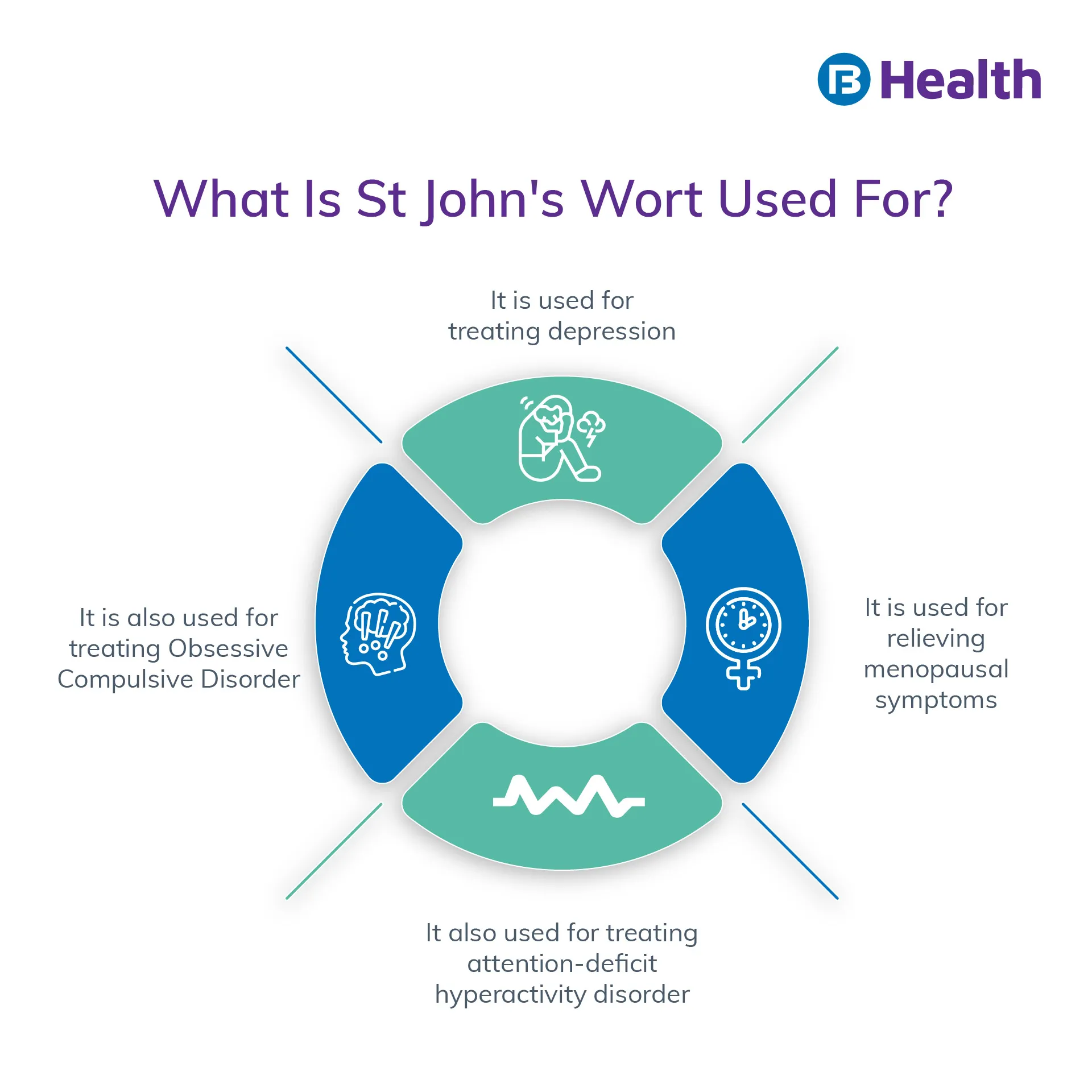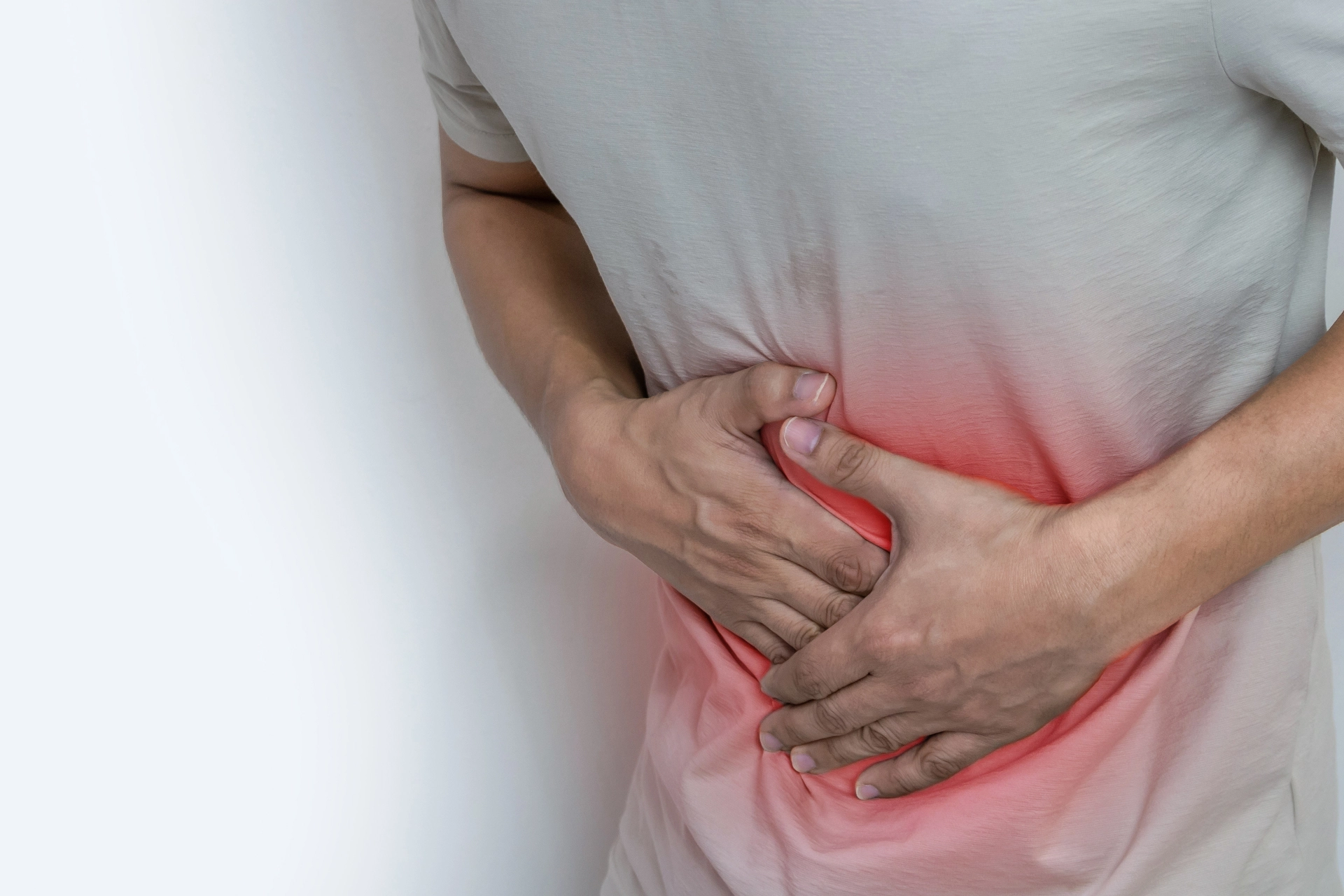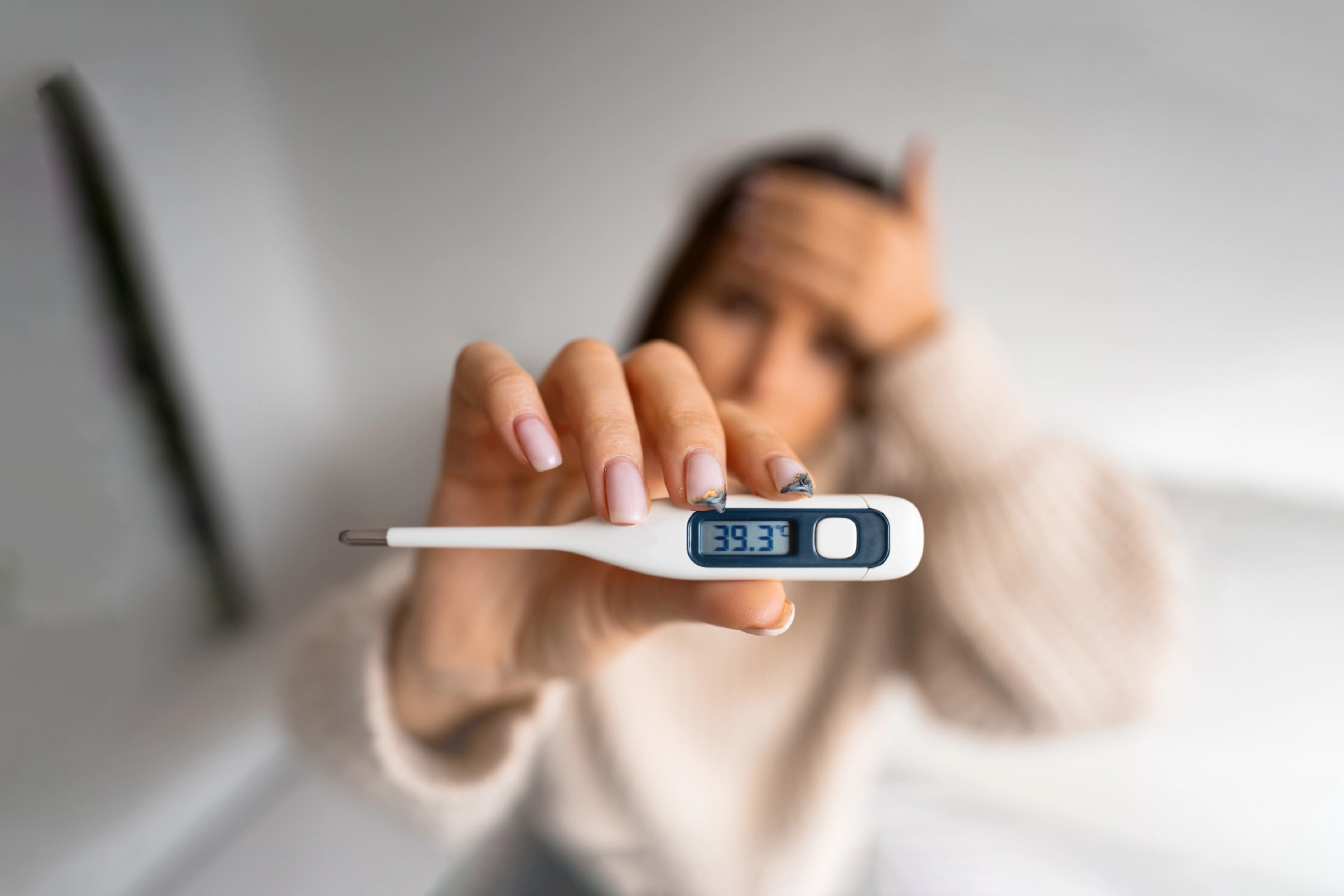Ayurveda | 5 min read
St. John’s Wort: Ingredients, Uses, Benefits, Precautions
Medically reviewed by
Table of Content
Synopsis
St John’s Wort is a herbal supplement available in several countries. Its medicinal properties relieve depression, mood disorders, and related conditions. In addition, it also helps reduce symptoms of various other ailments. This article focuses on knowing more about this alternate medical solution and finding multiple uses for it as an over-the-counter (OTC) product.
Key Takeaways
- St. John’s Wort treats depression and mood disorders
- In most countries, it is available as a herbal dietary supplement without the need for a prescription
- The herbal product interacts with other drugs and thus needs to be taken with precautions
St. John's Wort is used in alternative medicine to help heal the human body suffering from various medical conditions. The practice of complementary and alternative medicine (CAM) continues to provide relief from multiple ailments even today despite other conventional medications being available. St. John's wort uses as an herbal supplement that is widely accepted as an antidepressant and provides relief from several other diseases as well. So, let us find out more.
What is St. John's Wort?
St. John's Wort is a plant native to temperate regions like Europe, with a history of medicinal use dating back to ancient Greece. [1] For ages, herbal medicines such as jatamansi have been used in India's Ayurveda medicine. St. John Wort is also one of them. Even western healthcare professionals use St John's Wort to treat depression.
The plant gets its name from blooming around the feast day of St. John the Baptist on 24 June. The shrub with star-shaped yellow flowers has active ingredients that work as antidepressants to relieve the symptoms of depression and mood disorders. Moreover, St. John's Wort benefits include its antibacterial, antioxidant, and antiviral properties. In addition, it heals wounds and burns as an anti-inflammatory skin agent.
Its chemical ingredients primarily act as brain messengers to regulate mood and trigger interactions with other drugs. So, let's find out more about St. John's Wort uses.
Ingredients of St John's Wort
The flowers and leaves contain the active components hypericin and pseudohypericin. However, scientists still lack clarity if these ingredients are St John's Wort's primary healing agents. Therefore, studies are still going on to understand its other components and how they work.

How does St. John's Wort Work?
Hypericin found in the herb treats mild-to-moderate depression. Chemicals like hyperforin, ad-hyperforin, and similar chemicals play a larger role in treating depression by acting on messengers that regulate mood. [2]
It shows fewer side effects than most prescription antidepressants but interacts with many standard medications. Therefore, guidance from a healthcare professional is important when using alternate medicine.
St. John's Wort Uses
Depression
Scientists believe hypericin and other St John's Wort chemicals work as antidepressants. Moreover, these chemicals do not affect one's sex drive.
Menopause
Evidence shows improvement in mood and anxiety during menopause when St John's Wort is taken.
Premenstrual Syndrome (PMS)
Many women show physical and emotional symptoms signifying PMS. They include irritability, cramps, breast tenderness, and food cravings. Use of St. John's Wort reduces symptoms by nearly 50%. [3]
Skin Benefits
St. John's Wort has Skin benefits as its anti-inflammatory properties significantly reduce the severity of skin conditions, including eczema, wounds, burns, and hemorrhoids. Their antibacterial property fights inflammation upon local application to relieve symptoms.
Seasonal Affective Disorder (SAD)
Lack of sunlight during the winter triggers depression in some individuals, referred to as seasonal affective disorder. It lifts the mood in the affected people but acts better when combined with phototherapy.
Obsessive Compulsive Disorder (OCD)
There are conflicting views about the efficacy of St John's Wort on obsessive compulsive disorder. While some studies show no improvement, others show marked improvement in the symptoms with a dosage of 450 mg twice daily for twelve weeks. [4]

Dosage For St John's Wort
You can obtain St John's Wort in many forms, including capsules, tablets, teas, and powder. Whatever the form, the standard products contain 0.3% hypericin. [5]
- Adults: Dry herb (Capsules and Tablets): The St John's Wort dosage is 300 mg (standardized to 0.3% hypericin extract) thrice a day for treating mild depression symptoms. Moreover, the medicine is available in time-release pills.
- Liquid extract (Tea): The doctor advises the right dose of the St John's Wort liquid extract, which you can seek even on an online appointment.
Is St John Wort safe for children to take?
St John's Wort treatment for mild depression is safe under the supervision of medical specialists. The healthcare provider monitors the side effects in children undergoing treatment with St John's Wort. Drug-induced allergies and stomach upsets in children can lead to serious illnesses.
It is important to note that the effects begin to show only after 3 to 6 weeks of use.
Precautions For St John's Wort
St John's Wort herbal supplements can trigger side effects and interact with other medications. So, the recommendation is to ingest herbal extracts under medical supervision with regulated doses.
Side Effects of St John's Wort
Mild Side Effects Triggered Are:
- Stomach upset
- Hives and skin rashes
- Restlessness and fatigue
- Headache
- Dry mouth and a feeling of confusion
- Dizziness
- Skin sensitivity to sunlight is called photodermatitis
Who Should Avoid Using St John's Wort:
- Persons suffering from severe depression
- Women in the family way as the herb interferes with pregnancy and worsen infertility.
- People with schizophrenia
- People afflicted with Alzheimer's disease
- People with bipolar disorder
- Stop taking St John's Wort at least five days before undergoing surgery.
Interactions
Some interacting medicines to be careful about are:
- Antidepressants: Many prescription antidepressants interact with it.
- Antihistamines: Most drugs for treating allergies become ineffective after interacting with it.
- Clopidogrel: The interaction may increase the risk of bleeding in cardiovascular patients
- Cough suppressants: Interaction with Dextromethorphan can induce side effects, including serotonin syndrome
- Immunosuppressants: Interaction with it reduces the effect of these medications on organ transplants and treating immunodeficiency diseases.
- HIV drugs: The FDA suggests not using St John's Wort with antiretroviral HIV and AIDs medications.
- Contraceptive pills: They become less effective after interacting with St John's Wort causing breakthrough bleeding in women.
- Sedatives: It combines with sedatives to increase the effect across all sedatives for treating diseases like insomnia.
- Lung disease medication: It lowers blood levels of drugs like Theophylline used to open the airways for asthma, chronic bronchitis, and emphysema patients.
It is one of the most significant herbal supplements out there for the treatment of depression and related medical conditions. The herbal product is popular in the USA as a diet supplement, but many other countries do not allow its use without prescriptions due to its drug interactions and side effects.
If you are curious about the use and availability of St John's Worts in India, Bajaj Finserv Health is here to help you gain insight into the world of alternative medicine, including Ayurveda and Homeopathy. So much so that its health insurance covers AYUSH treatment.
References
- https://www.ncbi.nlm.nih.gov/books/NBK92750/#:~:text=St.%20John%E2%80%99s%20wort%20%28SJW%29%2C%20known%20botanically%20as%20Hypericum,back%20to%20the%20time%20of%20the%20ancient%20Greeks.
- https://www.ehealthzine.com/natural-ways-to-treat-depression.html#:~:text=St.%20John%E2%80%99s%20Wort%20is%20a%20medicinal%20herb%20that,messengers%20in%20the%20nervous%20system%20that%20regulates%20mood.
- https://www.choosingtherapy.com/st-johns-wort/
- https://www.nccih.nih.gov/health/st-johns-wort-and-depression-in-depth
- https://pubmed.ncbi.nlm.nih.gov/16306003/
Disclaimer
Please note that this article is solely meant for informational purposes and Bajaj Finserv Health Limited (“BFHL”) does not shoulder any responsibility of the views/advice/information expressed/given by the writer/reviewer/originator. This article should not be considered as a substitute for any medical advice, diagnosis or treatment. Always consult with your trusted physician/qualified healthcare professional to evaluate your medical condition. The above article has been reviewed by a qualified doctor and BFHL is not responsible for any damages for any information or services provided by any third party.



